The state of Victoria in southern Australia has recently been hit with hundreds of bush fires during a record-breaking heatwave - temperatures well above 38°C (100°F). Unfortunately, these fires have proved to be the deadliest in Australian history, with at least 166 deaths reported so far. The fires mostly appear to have been started by lightning - however a few appear to have been arson, and are under investigation - entire towns being declared crime scenes. Twenty-four fires are still burning, and authorities warn that the death toll will likely rise.
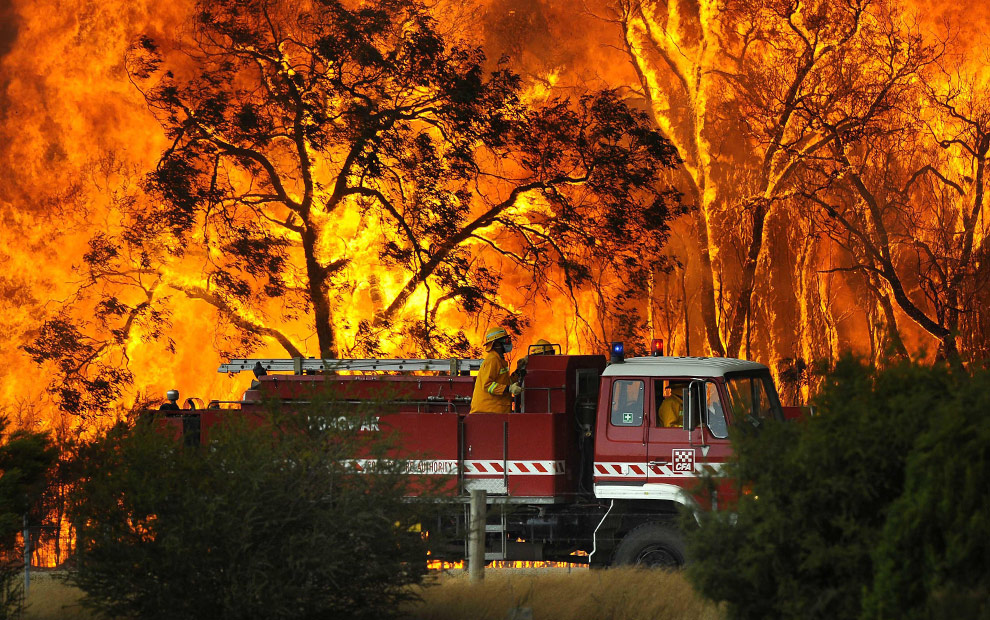
A fire truck moves away from out of control flames from a bushfire in the Bunyip Sate Forest near the township of Tonimbuk, 125 kilometers (78 miles) west of Melbourne, Saturday, Feb. 7, 2009. Walls of flame roared across southeastern Australia, razing scores of homes, forests and farmland in the sunburned country's worst wildfire disaster in a quarter century. (AP Photo)
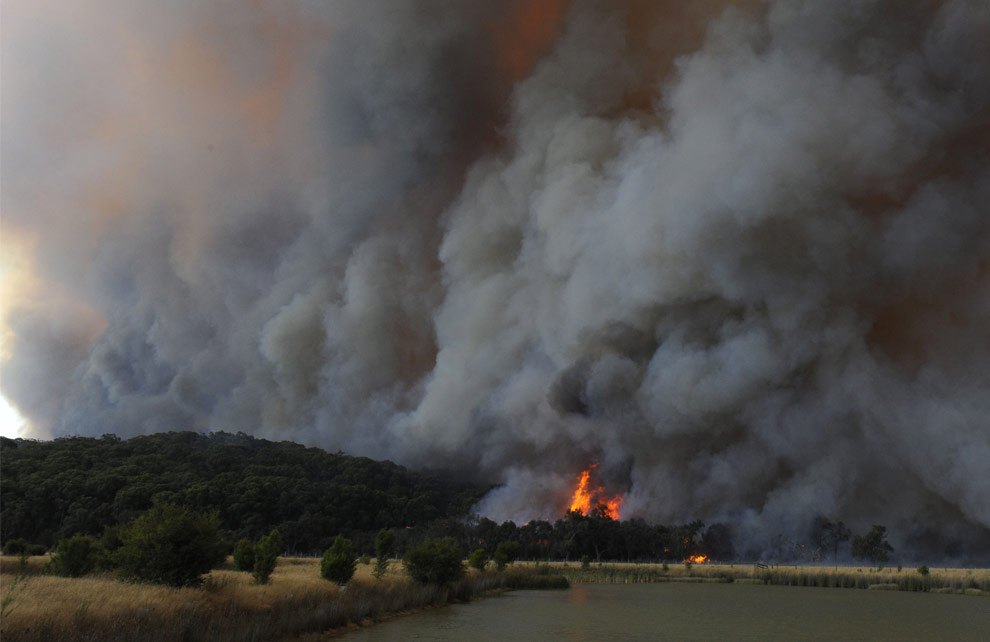
2
Flames and smoke rise from a bushfire in the Bunyip Sate Forest west of Melbourne, Saturday, Feb. 7, 2009. (AP Photo) #
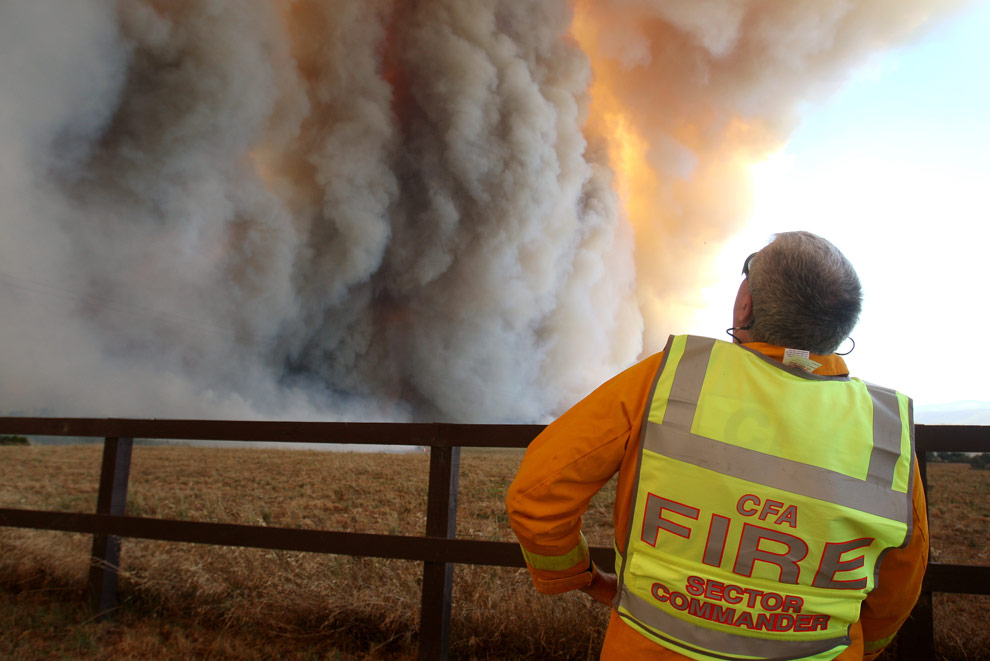
3
A Country Fire Authority (CFA) Sector Commander looks up at a giant fire raging in the Bunyip State Park near Labertouche, Australia, on February 7, 2009. More than 40 blazes raged across two states as a once-in-a-century heatwave pushed the mercury as high as 46 degrees Celsius (115 Fahrenheit) with fire bans in place across much of the south-east. (WILLIAM WEST/AFP/Getty Images) #
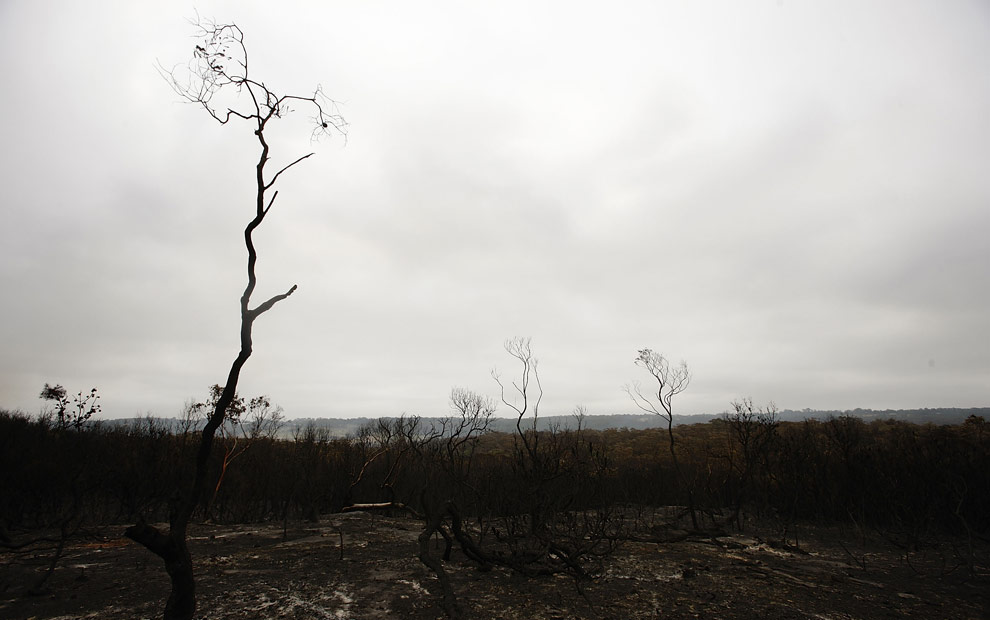
4
A general view of the devastation from the Peats Ridge Valley bushfire on February 9, 2009 in Peats Ridge, Australia. (Brendon Thorne/Getty Images) #
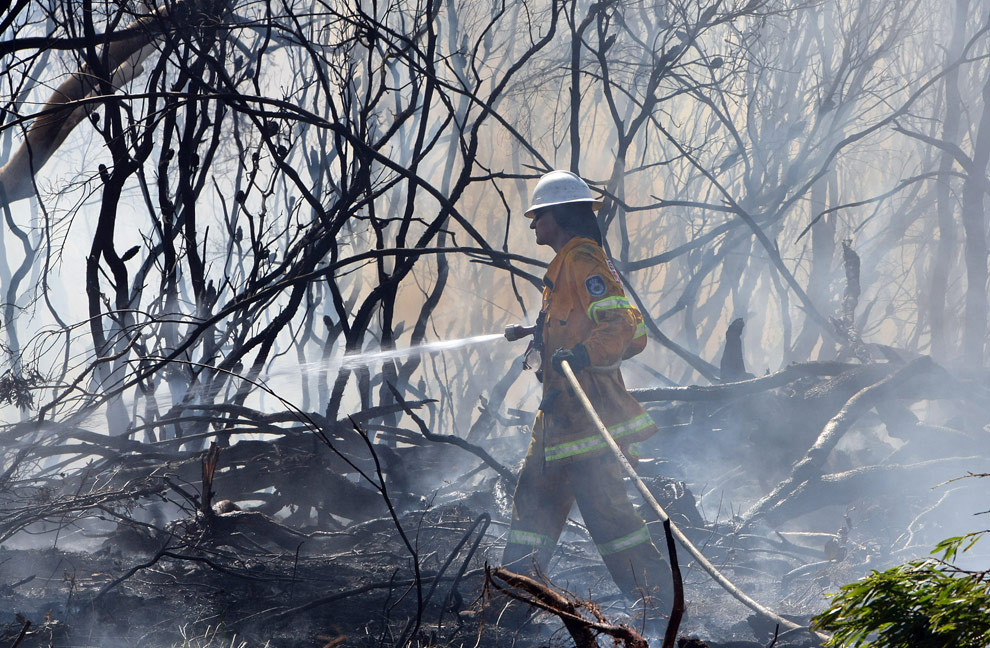
5
A firefighter tries to contain a bushfire approaching the town of Peats Ridge, north of Sydney, on February 8, 2009. #
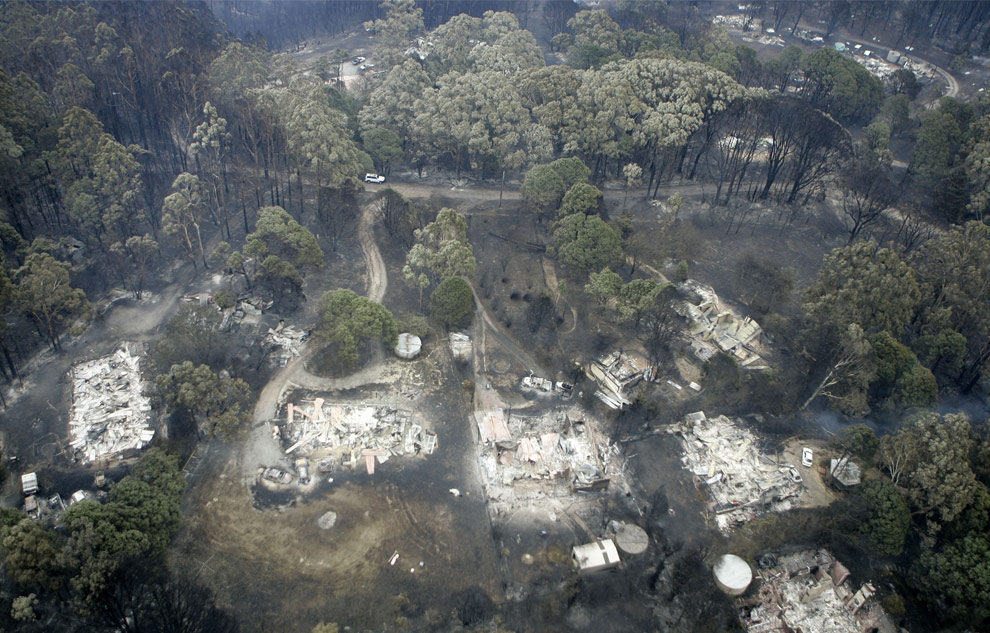
6
Small acreage is burned out in Kinglake, northeast of Melbourne, Australia, Sunday, Feb. 8, 2009. (AP Photo/Rick Rycroft) #
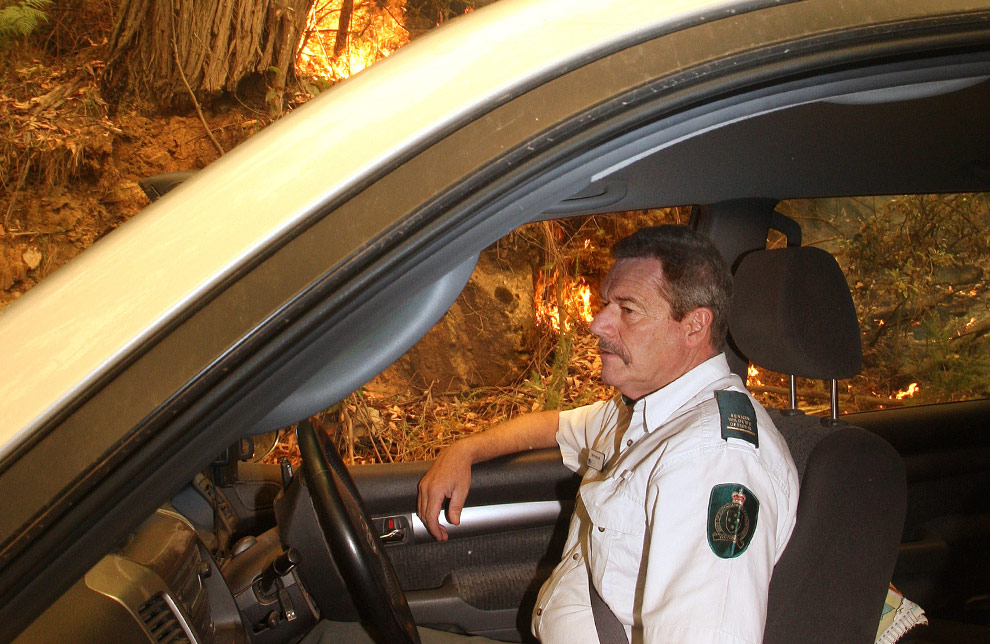
7
Senior Wildlife Officer Geoff McClure inspects the fire front at Mt. Cathederal, near Alexandra, some 120 kilometres northeast of Melbourne on February 9, 2009. (WILLIAM WEST/AFP/Getty Images) #
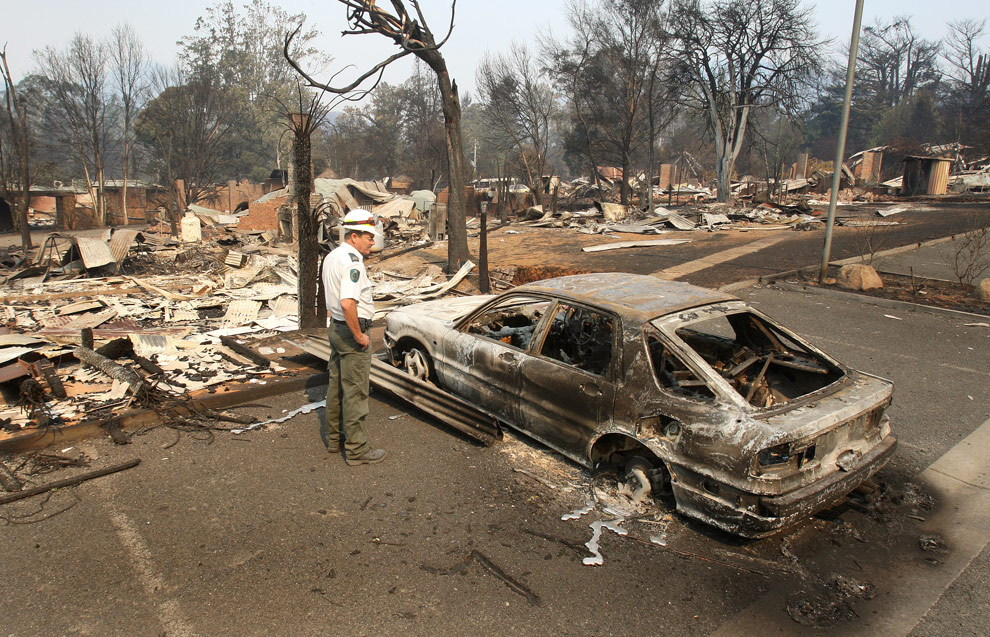
8
Senior Wildlife Officer Geoff McClure looks over the destruction in the main street of Marysville, some 100 kilometres northeast of Melbourne on February 9, 2009. The wildfires have become the deadliest in Australia's history, destroying entire towns and wiping out families and amid the heartache there was also anger as police revealed they suspected some of the fires were started by arsonists. (WILLIAM WEST/AFP/Getty Images) #
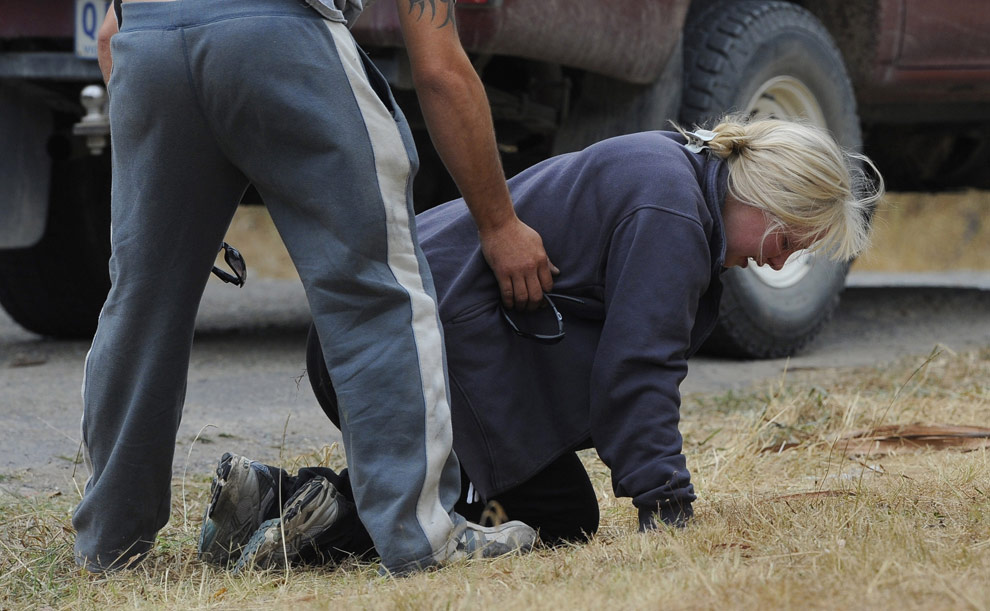
9
Family members react after learning that their parents Bill and Faye Walker and disabled brother Geoffrey were killed in wildfires in Marysville, north of Melbourne, Monday, Feb. 9, 2009. (AP Photo) #
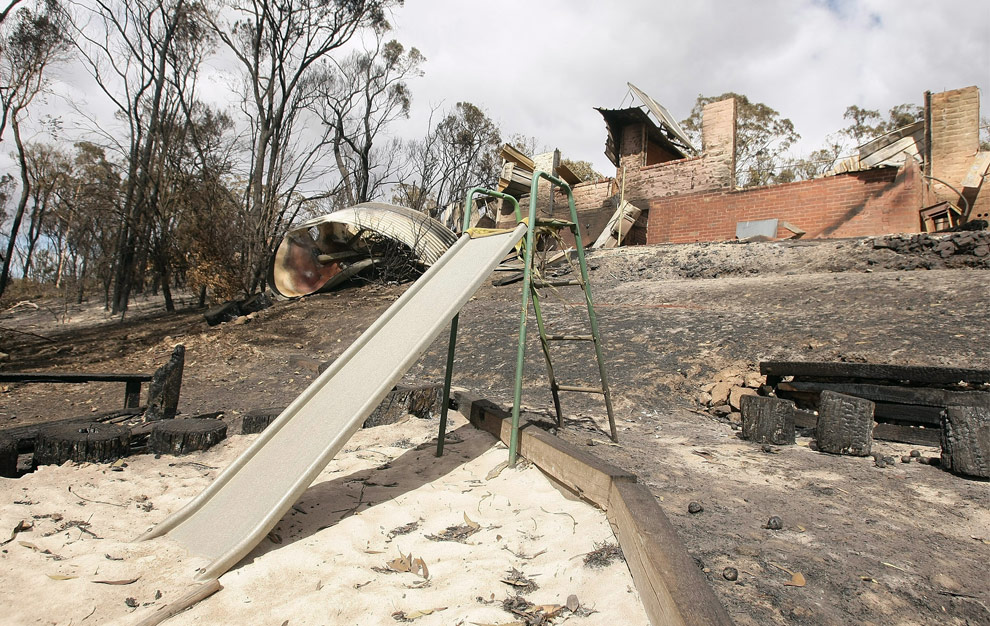
10
A burnt out house is seen following the bushfires that swept through the region on February 9, 2009 in Christmas Hills, Australia. (Lucas Dawson/Getty Images) #
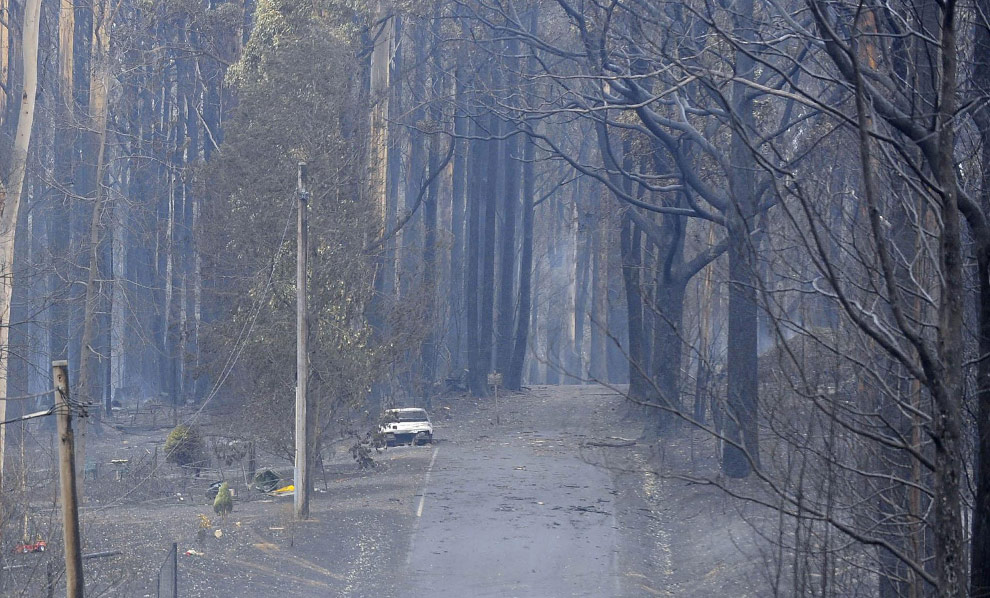
11
A burnt out house and a car are seen at the township of King Lake, north east of Melbourne, Sunday, Feb. 8, 2009. Towering flames razed entire towns in southeastern Australia and burned fleeing residents in their cars as the death toll from the country's worst fire disaster in a quarter-century reached 65 on Sunday. (AP Photo/Stringer) #
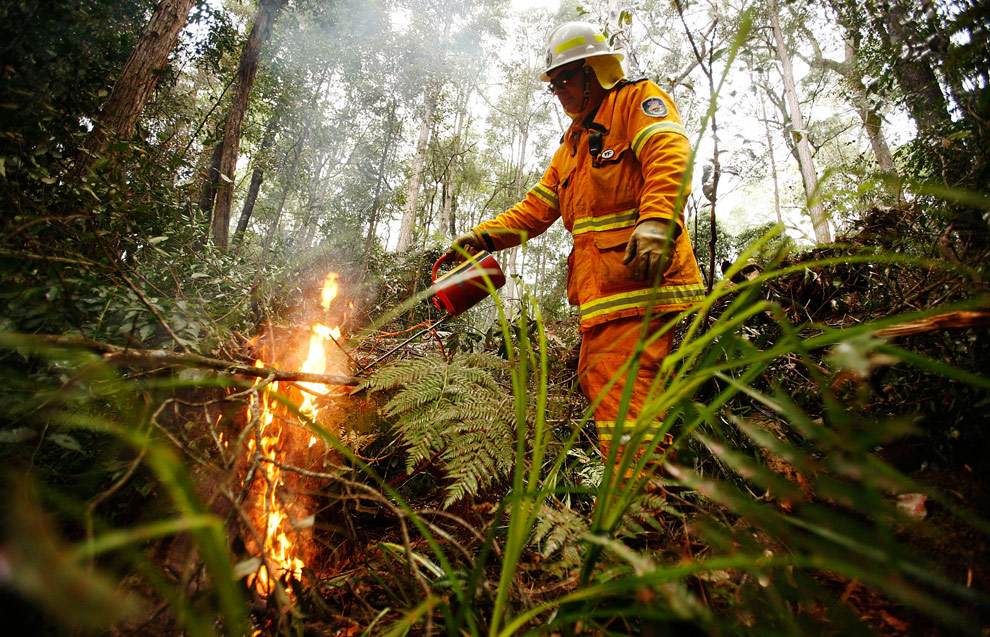
12
A rural firefighter backburns vegetation off Euloo road in the Peats Ridge Valley on February 9, 2009 in Peats Ridge, Australia. (Brendon Thorne/Getty Images) #
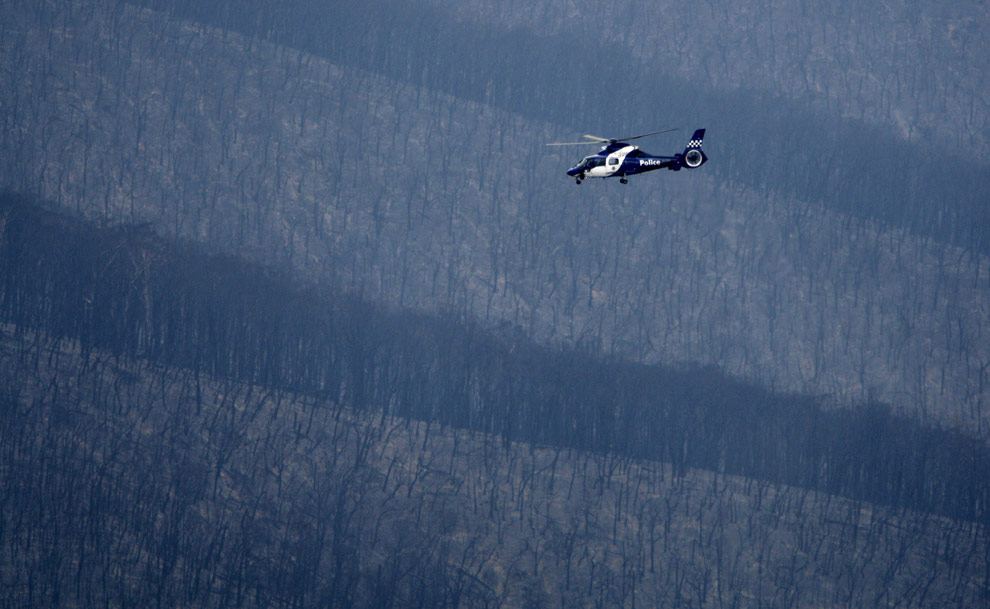
13
A police helicopter surveys damage from fires northeast of Melbourne, Australia, Sunday, Feb. 8, 2009. (AP Photo/Rick Rycroft) #
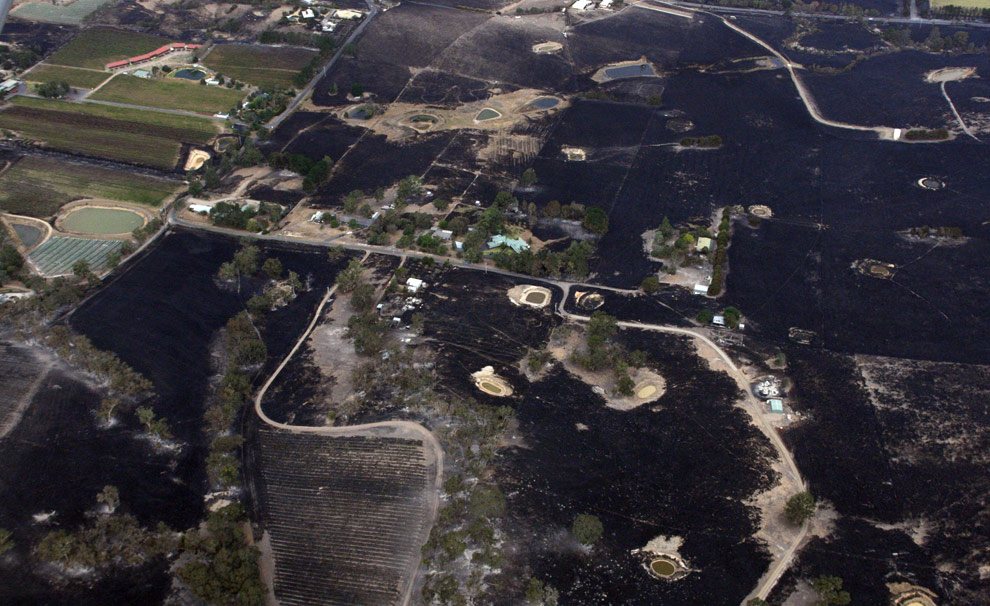
14
The remains of a properties destroyed by bushfires are seen in the town of Kinglake, 55km (34 miles) northeast of Melbourne February 8, 2009. (REUTERS/Mick Tsikas) #
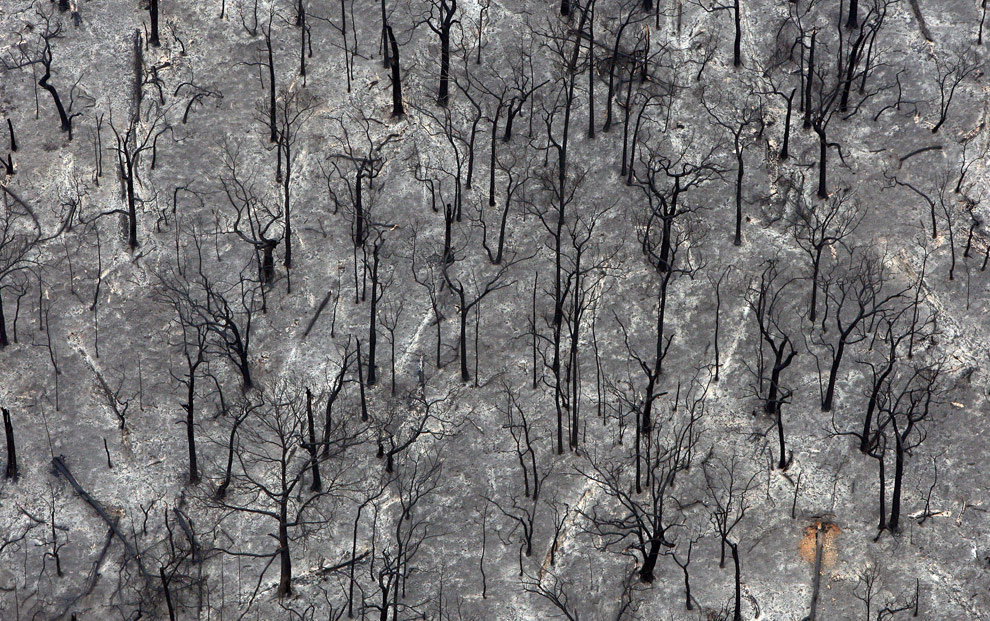
15
Burnt out trees outside Kinglake that were destroyed by fire are viewed from this aerial shot on February 8, 2009. (WILLIAM WEST/AFP/Getty Images) #
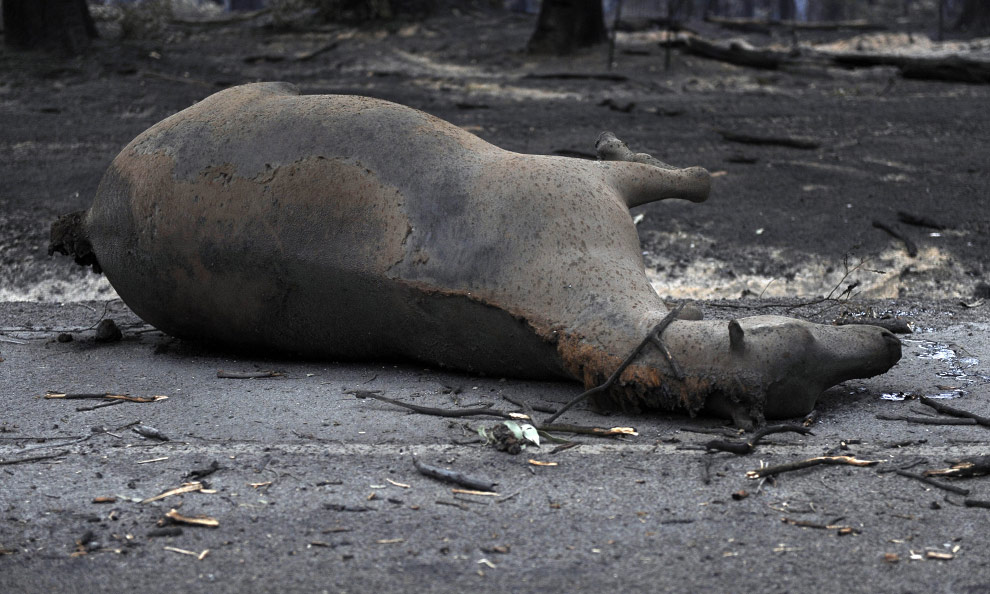
Warning:
This image contains graphic
or objectionable content
click here to view it.
16
A dead horse lies on the side of the road leading to the township of King Lake, northeast of Melbourne, Sunday, Feb. 8, 2009. (AP Photo) #
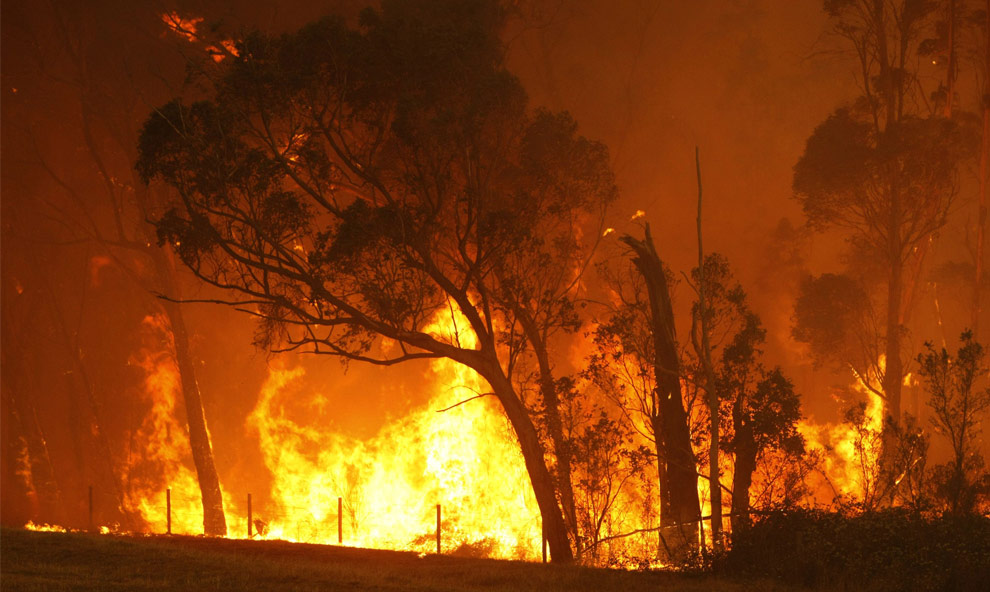
17
A bushfire burns through a forest on the outskirts of Labertouche, 90km (56 miles) east of Melbourne February 7, 2009. (REUTERS/Mick Tsikas) #
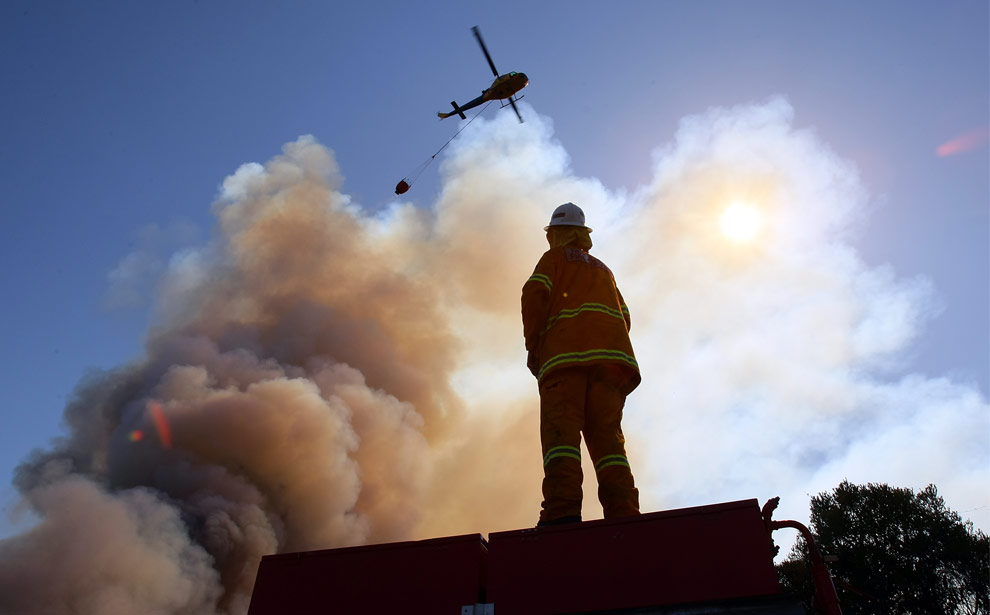
18
A firefighter watches a helicopter water bomb a bushfire approaching the town of Peats Ridge, north of Sydney, on February 8, 2009. (TORSTEN BLACKWOOD/AFP/Getty Images) #
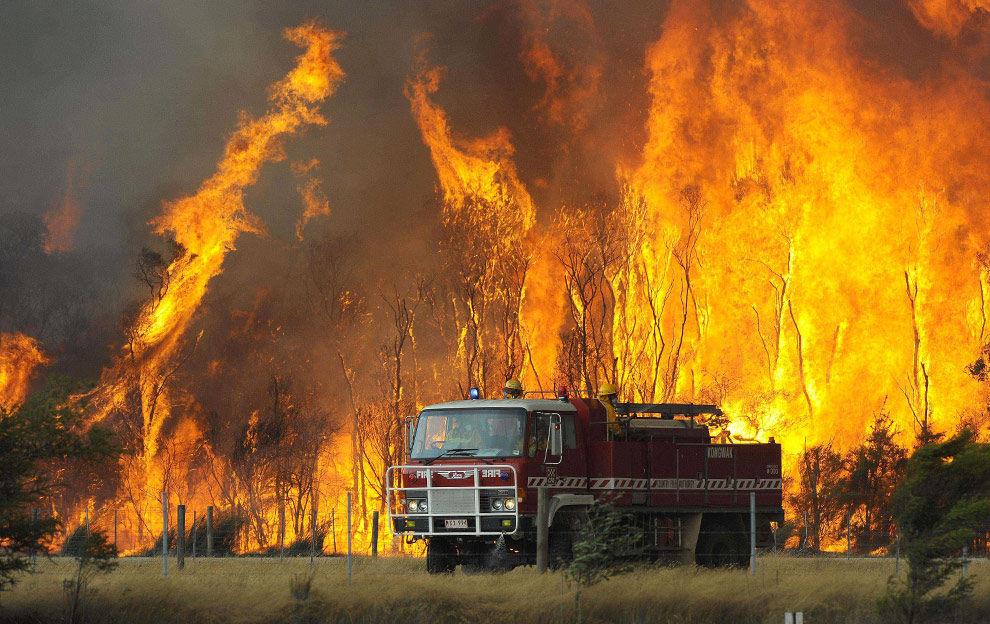
19
A fire truck moves away from out of control flames from a bushfire in the Bunyip Sate Forest near the township of Tonimbuk, 125 kilometers (78 miles) west of Melbourne, Saturday, Feb. 7, 2009. (AP Photo) #
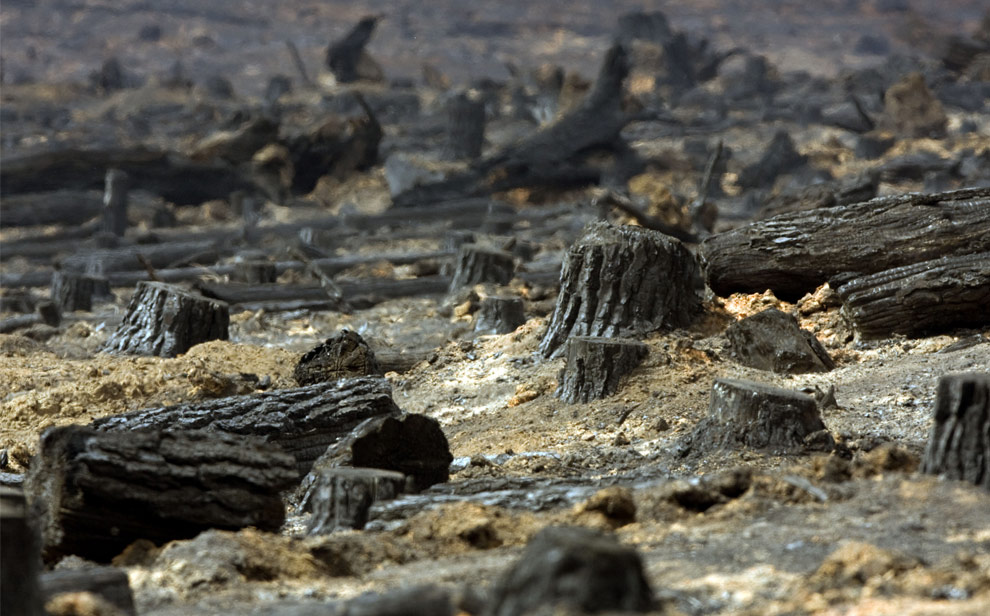
20
A charred landscape remains in the aftermath of a bushfire on February 3, 2009 Mirboo North, approximately 200 kms southeast of Melbourne, Australia. Over 400 fire fighters battled the blaze, which spread for over 6300 hectares and destroyed 29 homes in its path, plus numerous sheds, cars and a piggery. (Luis Ascui/Getty Images) #

21
An aircrane fire-fighting aircraft collects a load of water to fight the Bunyip Ridge wildfire, some 100km east of Melbourne on February 9, 2009. (PAUL CROCK/AFP/Getty Images) #

22
A firetruck is seen as a bushfire approaches the town of Labertouche, 90km (56 miles) east of Melbourne, February 7, 2009. (REUTERS/Mick Tsikas) #
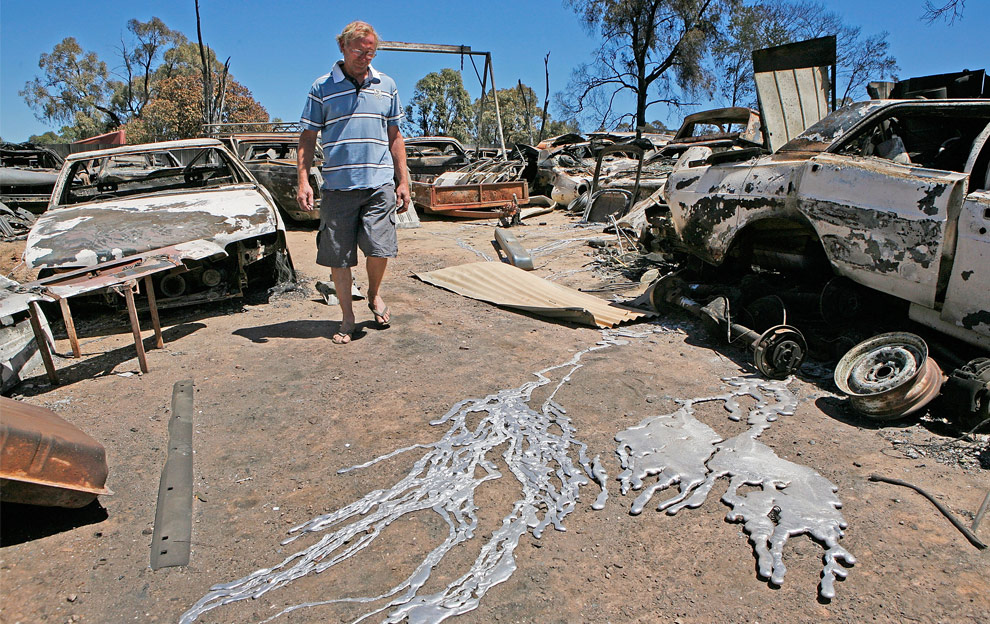
23
Craig Kidd looks at the melted metal of alloy wheels from his burnt out vehicles after a bushfire swept through his property on February 9, 2009 in Bendigo, 160 km from Melbourne, Australia. (Scott Barbour/Getty Images) #
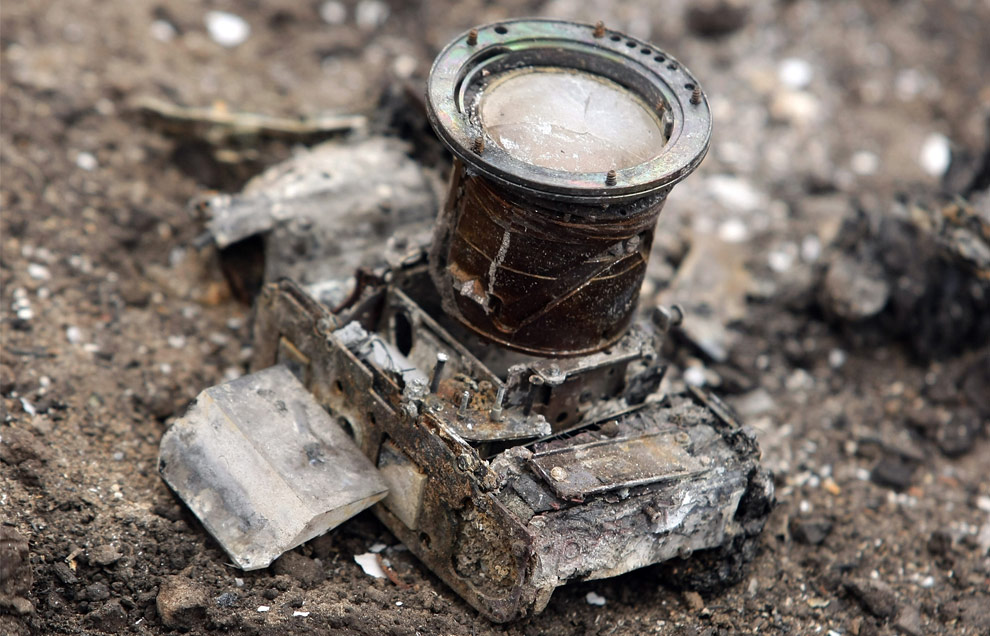
24
A burnt out camera is seen on the ground, following bushfires that swept through the region on February 9, 2009 in Christmas Hills, Australia. (Lucas Dawson/Getty Images) #
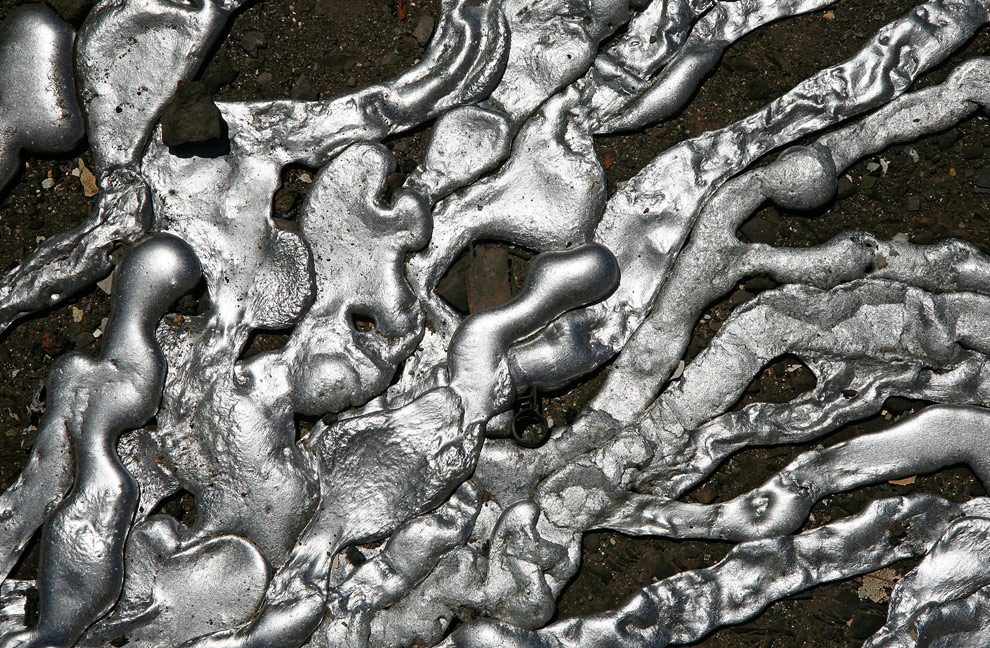
25
Melted metal from the alloy wheels of burnt out vehicles lies on the ground after a bushfire swept through properties on February 9, 2009 in Bendigo, 160 km north of Melbourne, Australia. (Scott Barbour/Getty Images) #

26
Country Fire Authority (CFA) volunteers prepare to move to save another house as a barn burns in the background close to Labertouche, some 125 kilometres west of Melbourne, on February 7, 2009. (WILLIAM WEST/AFP/Getty Images) #
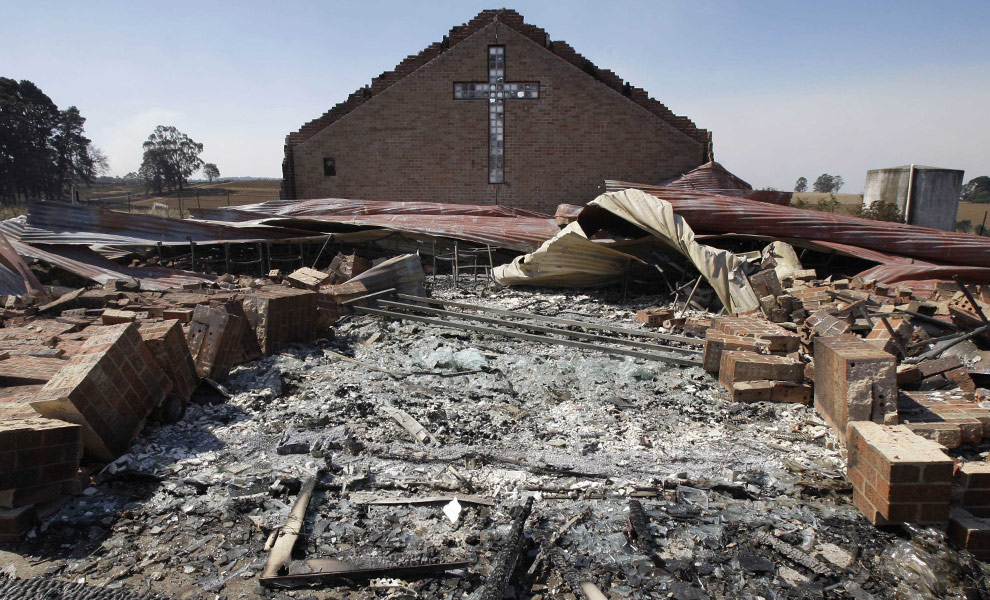
27
The remains of St. Andrew's church are scattered after it was destroyed by fire in the community of Kinglake, northeast of Melbourne on February 9, 2009. (RICK RYCROFT/AFP/Getty Images) #
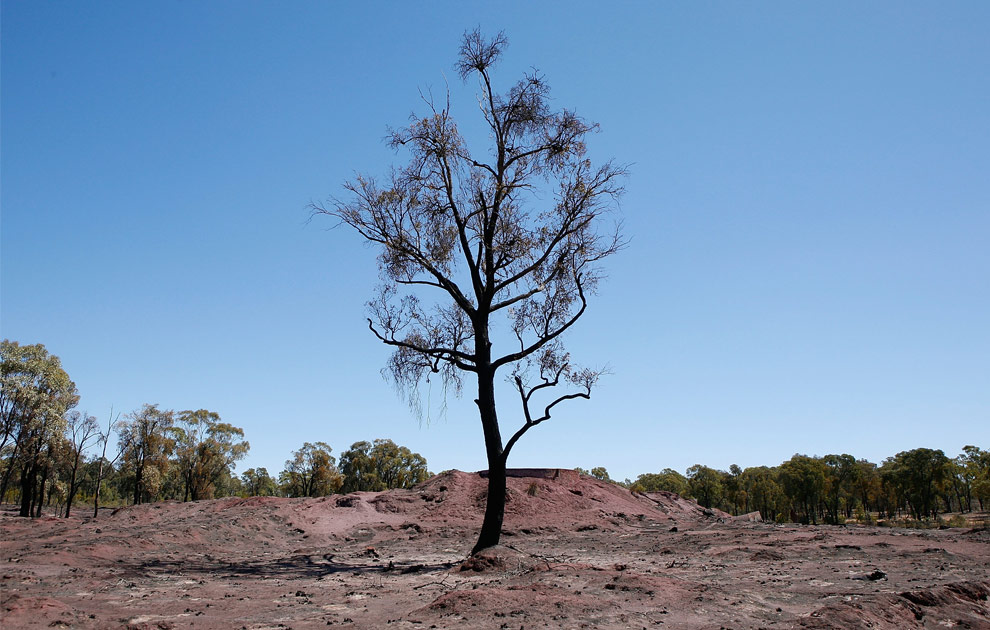
28
A single burnt out tree remains standing after a bushfire swept through on February 9, 2009 in Bendigo, 160 km from Melbourne, Australia. (Scott Barbour/Getty Images) #
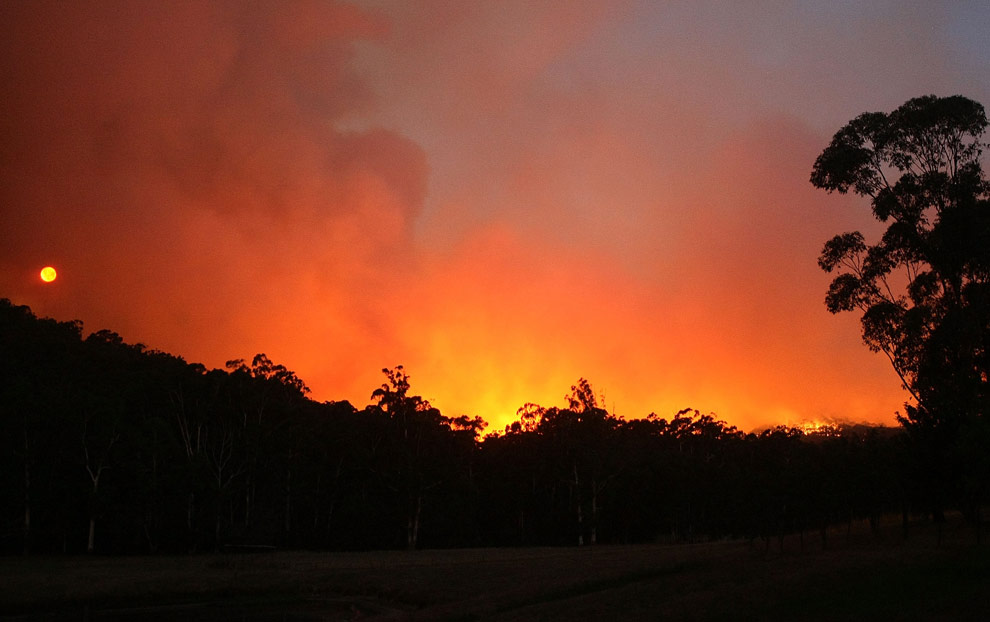
29
A fire blazes during the bushfires that swept through the region on February 9, 2009 in Healesville, Australia. (Lucas Dawson/Getty Images) #
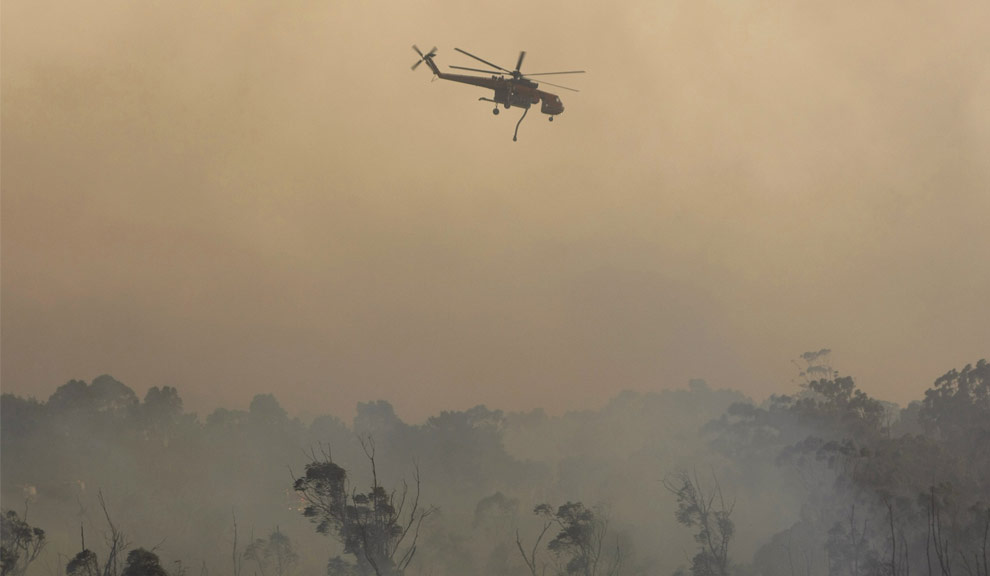
30
A helicopter drops water on a bushfire on the outskirts of Labertouche, 90km (56 miles) east of Melbourne, February 7, 2009. (REUTERS/Mick Tsikas) #
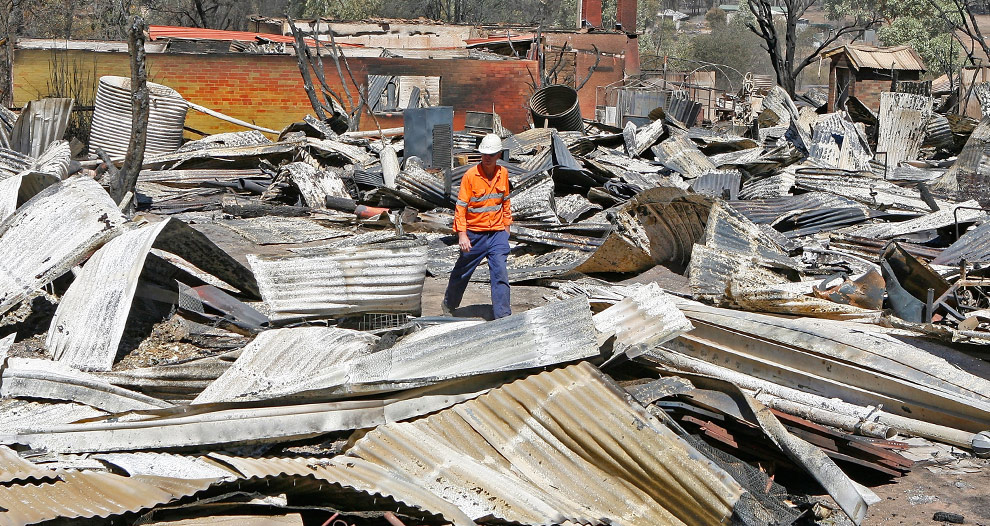
31
A man surveys the remains of a property after a bushfire swept through it on February 9, 2009 in Bendigo, 160 km north of Melbourne, Australia. (Scott Barbour/Getty Images) #
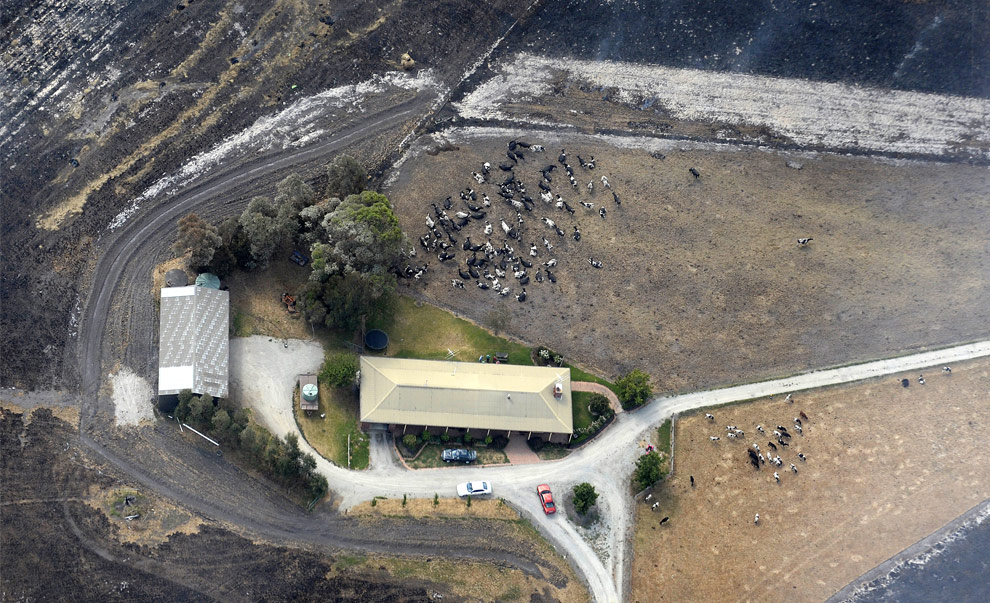
32
Remnants of a dairy herd shelter near a farmhouse after surviving a terrifying wildfire which burnt out thousands of hectares of farmland and eucalyptus forest near Bunyip some 100km east of Melbourne, on February 9, 2009. (PAUL CROCK/AFP/Getty Images) #
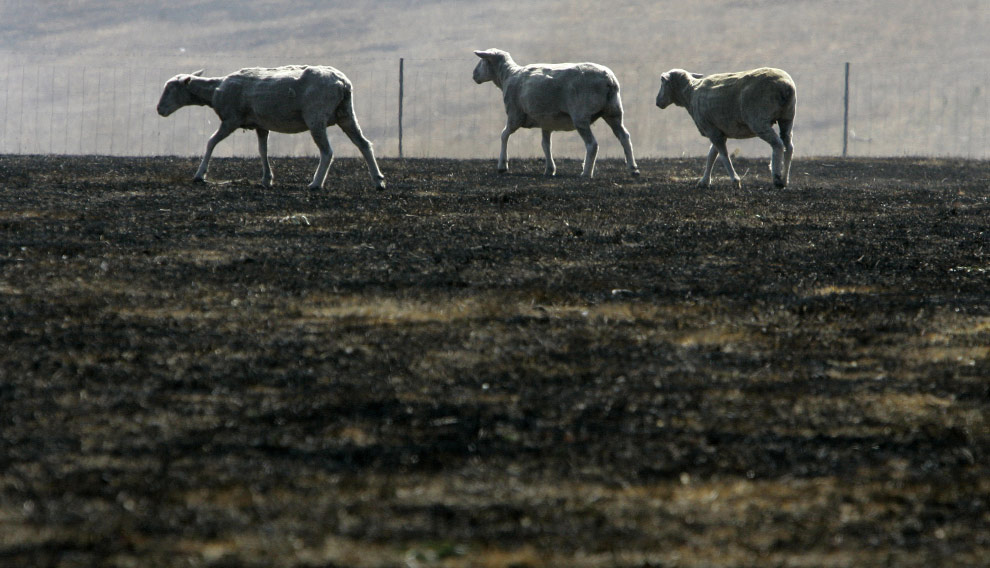
33
Sheep search for any patch of fresh grass left after fire raged through the community of Kinglake, north east of Melbourne, Australia Monday, Feb. 9, 2009. (AP Photo/Rick Rycroft, Pool) #
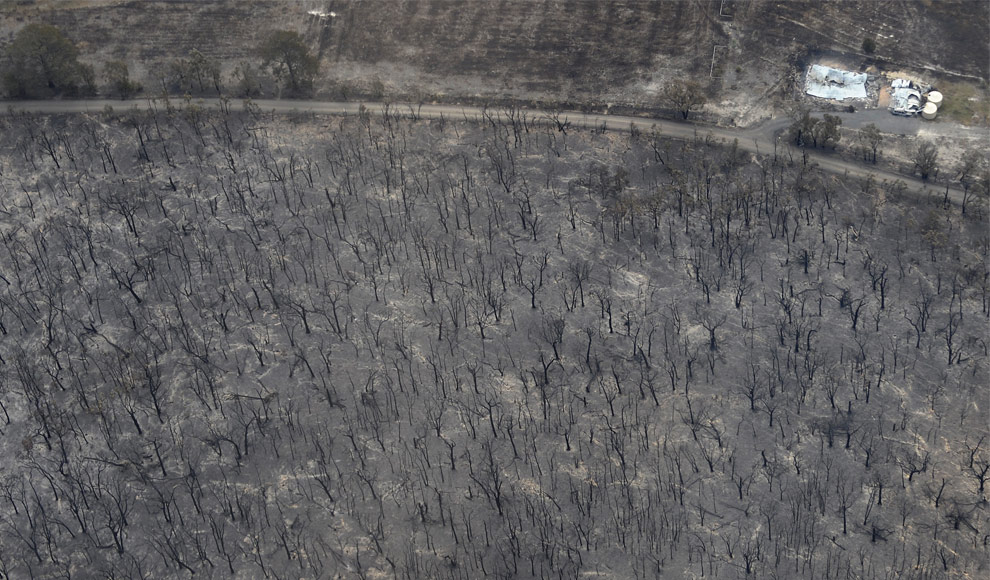
34
The ruins of a house and forest near Kinglake after wildfire tore the town apart some 100km north-east of Melbourne on February 9, 2009. (PAUL CROCK/AFP/Getty Images) #
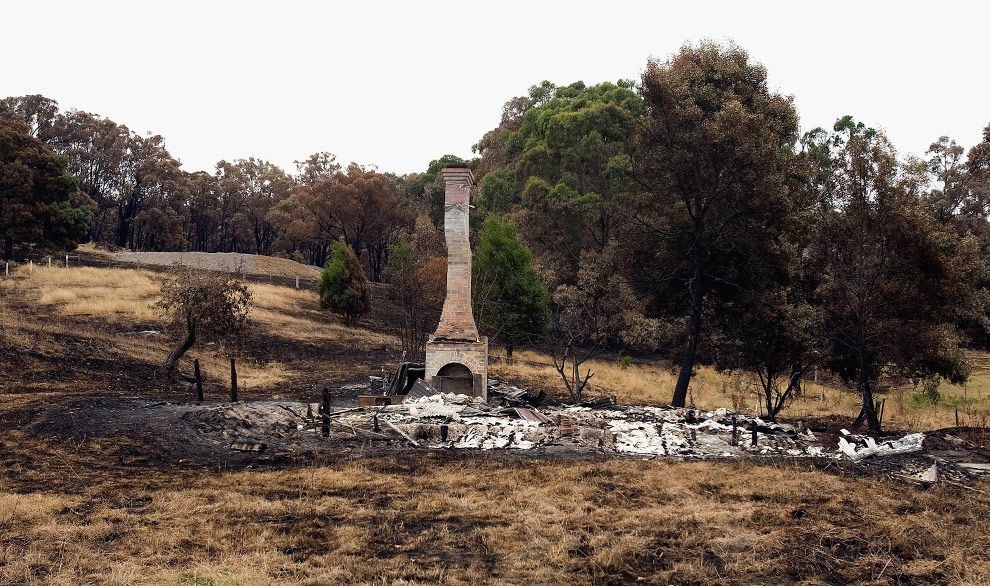
35
The burnt remains of a house are left standing in the aftermath of a bushfire on February 3, 2009 in Boolarra, approximately 200 kms southeast of Melbourne, Australia. (Luis Ascui/Getty Images) #
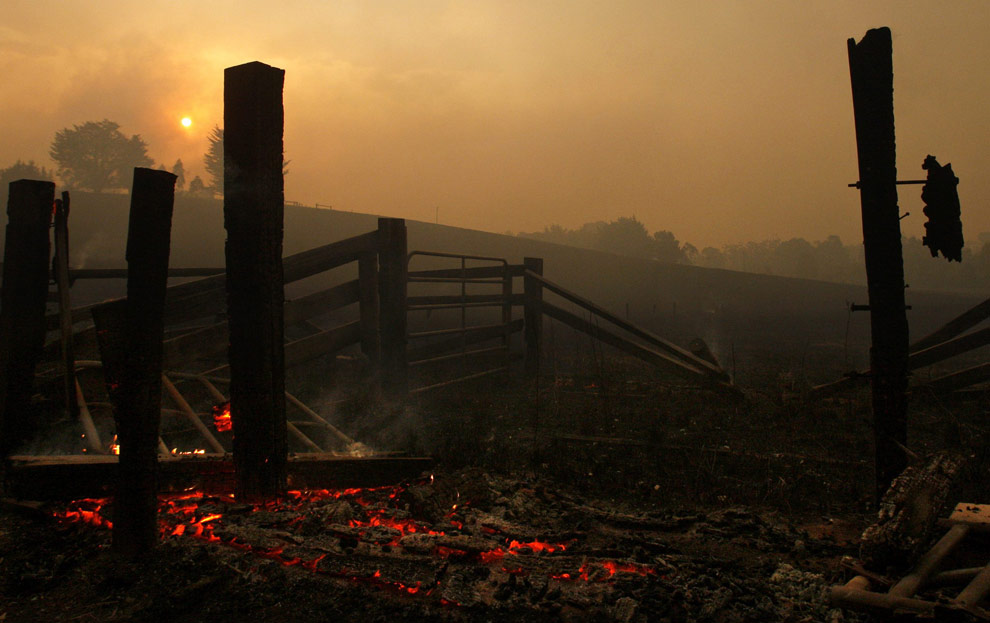
36
The remains of a sheep holding pen smoulder after a bushfire on the outskirts of Labertouche, 90km (56 miles) east of Melbourne February 7, 2009.











I visited your page because of the Air-Crane mentioned in your article, and now I was deeply impressed by the photographs, too.
ReplyDeleteBest regards,
Rosemarie from Germany